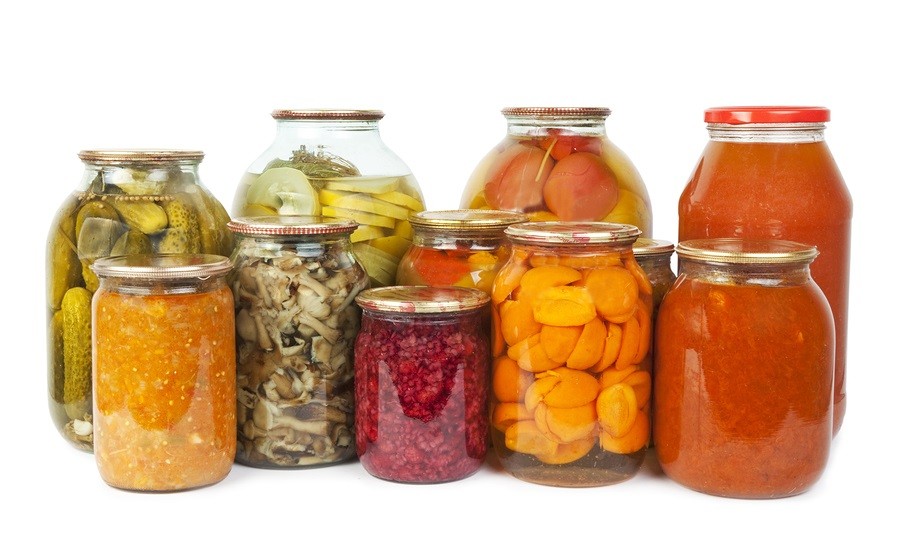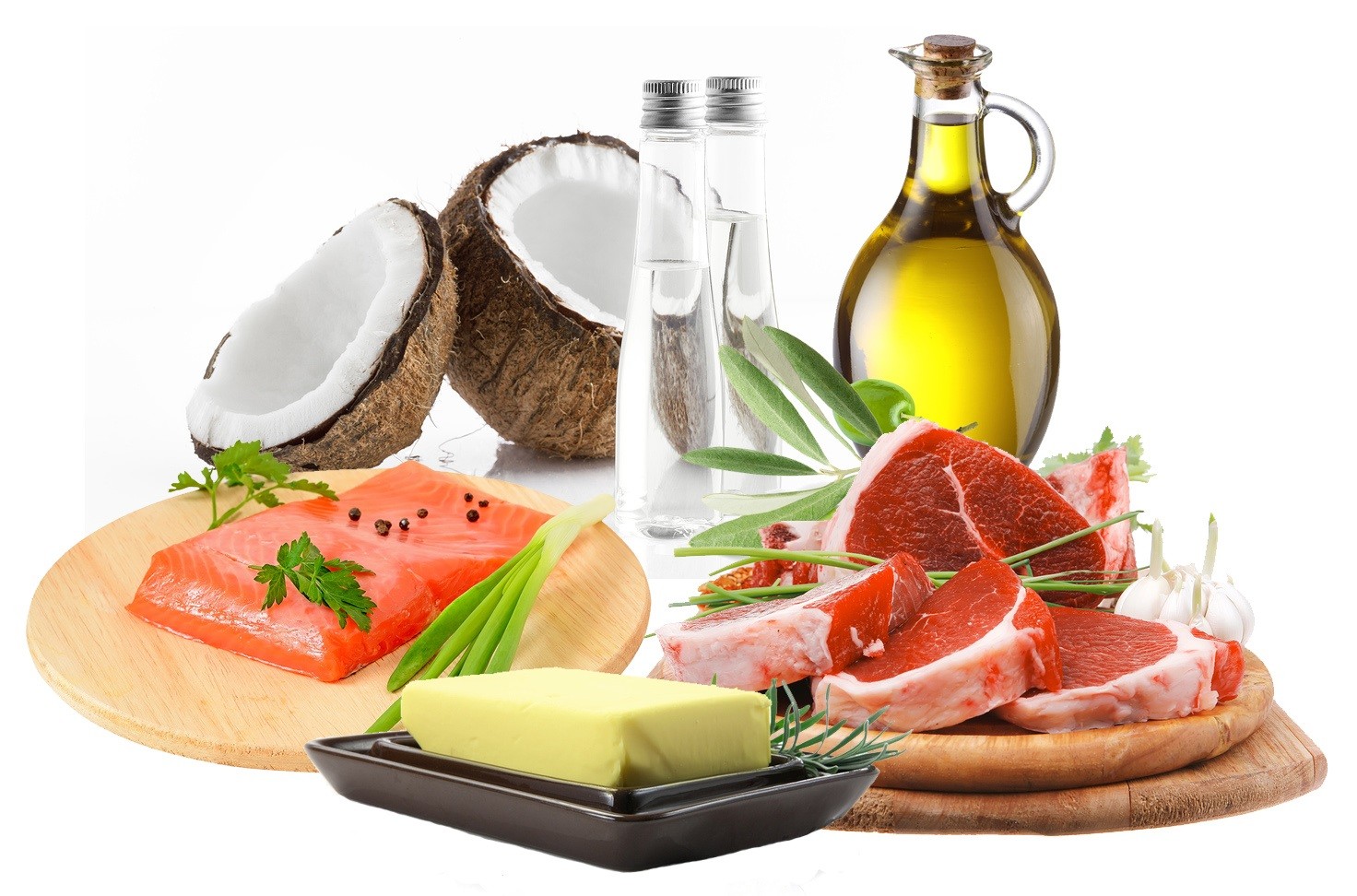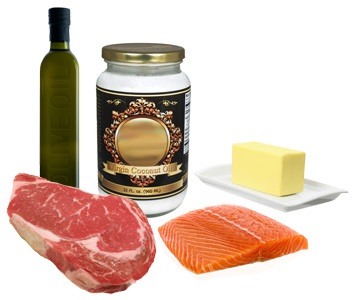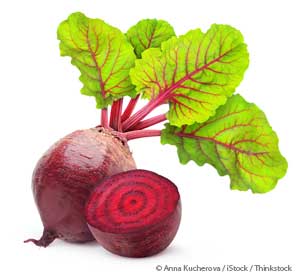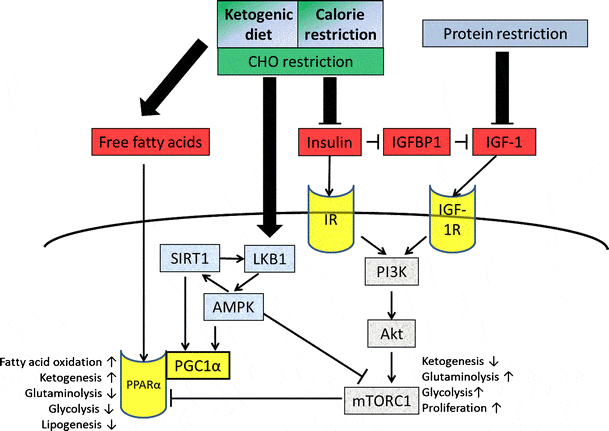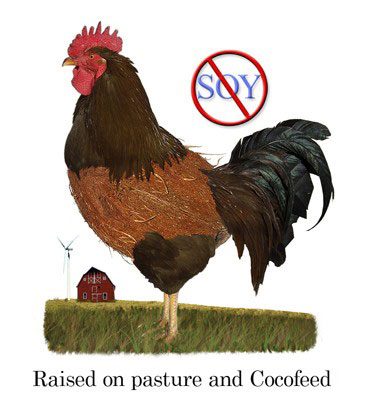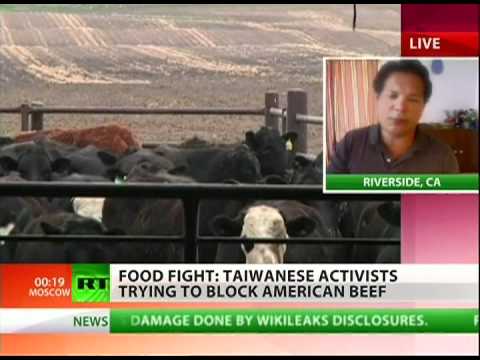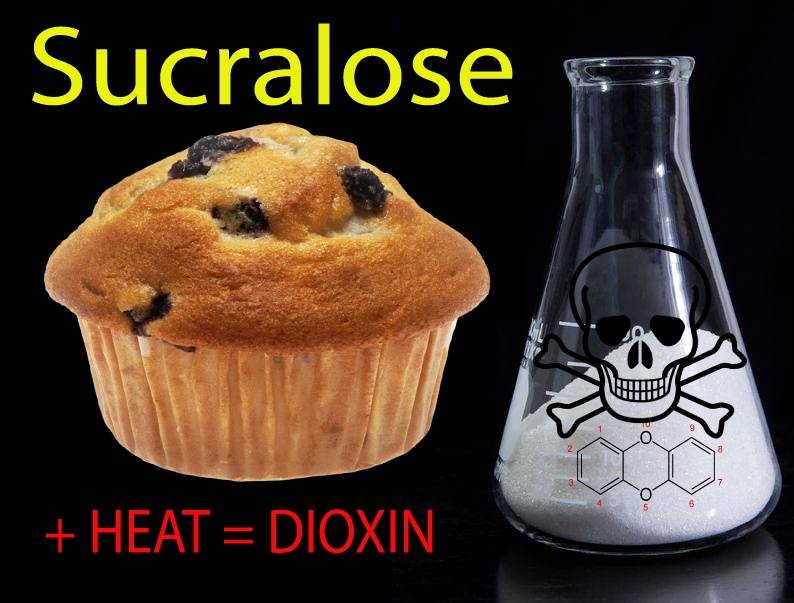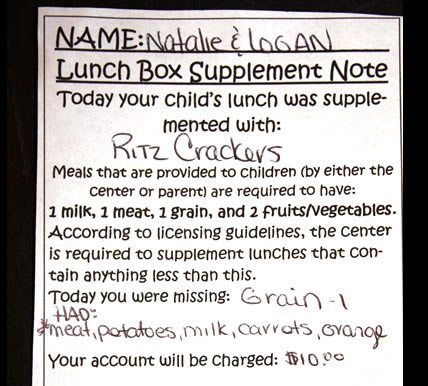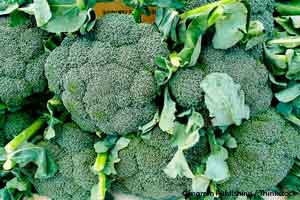News regarding traditional wisdom and native diets regarding nutrition.
California Legalized Selling Food Made At Home And Created Over A Thousand Local Businesses
Since January 2013 after the passage of California bill AB 1616 allowing homemade food to be sold legally, over 1,200 homemade food businesses have been approved in the State of California.
Ketogenic Diet Improves Insulin Sensitivity and Numerous Aging Markers
A high-fat low-carb ketogenic diet can optimize your metabolism. Numerous studies have shown that lowering your caloric intake may slow down aging, help prevent age-related chronic diseases, and extend your life. As you age, your levels of glucose, insulin and triglycerides tend to gradually creep upward. A 2010 study examined the effects of a high-fat diet on typical markers of aging. Study participants were given a high-fat, low-carbohydrate diet with adequate protein, and the results were health improvements across the board. Serum leptin decreased by an average of eight percent, insulin by 48 percent, fasting glucose by 40 percent, triglycerides by nearly eight percent, and free T3 (thyroid hormone) by almost six percent.
Prebiotic in Wheat Bran Boosts and Feeds Gut Bifidobacteria
Research from European and American scientists are confirming that wheat bran contains a special prebiotic fiber called arabinoxylan oligosaccharides which boost bifidobacteria content within the gut, and helps relieve numerous gastrointestinal issues. This isn’t the first study to find prebiotics in wheat bran. In fact several clinical studies have found this over the past few years. This probiotic issue is also an important aspect related to some of the negative health issues related to gluten consumption. When our probiotic colonies are low, our ability to break down the various components of not only the bran but the gluten. Gluten and gliadin proteins are contained in the germ, endosperm and bran of wheat. As shown in the research, when our probiotic colonies are reduced, our gut’s ability to consume/degrade these complex molecules is diminished.
Ketogenic Diet Can be used to Control Seizures
A high-fat, low-carbohydrate diet called 'ketogenic diet' could be used to control seizures in epilepsy patients. According to a latest study, there is a direct link between metabolism in brain cells and their ability to transmit signals. The research by scientists at McGill University and the University of Zurich shows that metabolism can control "the processes that inhibits brain activity" seen in people with epilepsy. The study team wanted to know why putting children with epilepsy on high-fat and low-carb diet is effective in controlling seizures. Other researchers had previously assumed that metabolism and signalling in brain cells are un-related processes. However, the current study shows that both the pathways are connected. The ketogenic diet lost its popularity post-1950s after anticonvulsant drugs hit the market. But, these drugs carry many side-effects and also don't work in about 20 percent of the patients. The current study might offer a different approach on controlling the condition.
Six Amazing Health Benefits of Eating Beets
Beets contain a variety of unique health-boosting nutrients that you may not be getting elsewhere
Sweet Potatoes: A Tasty Treat for Your Health
A substantial amount of research has proven that these naturally-sweet root vegetables possess antioxidant, anti-inflammatory, and disease-fighting components. Orange-colored sweet potatoes owe their appearance to the carotenoid beta-carotene. Carotenoids are natural pigments responsible for the colorful appearances of some fruits and vegetables. As an antioxidant, beta-carotene can help ward off free radicals that damage cells through oxidation, which can speed up aging and make you vulnerable against chronic diseases. This antioxidant can help support your immune system, as well as lower your risk of heart disease and cancer. Beta-carotene can be converted into retinol or vitamin A by your body, and vitamin A contributes to optimal eye health and vision. While taking vitamin A in large doses can be toxic, receiving it from beta-carotene is considered safe due to your body’s ability to regulate its vitamin A production. Sweet potatoes can also contribute to skin health. Vitamin A, which is a natural anti-inflammatory, can help get rid of acne-causing bacteria. Purple sweet potatoes, on the other hand, contain anthocyanins, another type of natural pigments. Anthocyanins are associated with reduced cancer risk. Studies show they help suppress stomach, colon, lung, and breast cancer cell proliferation. They also prevent blood clots by stopping platelets from clumping together – a function that may help fight heart disease.
The Nutrition Monopoly Is Beginning to Crumble
When it comes to nutrition, it is very important that you have the right to freedom of choice and information. Unfortunately, organizations such as the American Dietetic Association (now calling itself the Academy of Nutrition and Dietetics or AND) are threatening your freedom of choice about health and nutrition. The AND has pushed state laws to block almost anyone, except their registered dietitians (RDs), from legally giving nutritional advice. Their mission is to censor the broader nutrition community, which includes many well trained and educated practitioners, such as clinical nutritionists, pharmacists, naturopathic doctors and traditional naturopaths, acupuncturists, herbalists, nurses, mental health professionals, homeopaths, personal trainers, and the like. All across the U.S., however, this nutritional monopoly is beginning to crumble, especially at the state level.
Study: Intermittent Fasting and Ketogenic Diet Effective in Cancer Therapy
One of the truly exciting new frontiers in nutrition therapy is the study of the high-fat low-carb ketogenic diet, especially in relation to preventing and curing cancer. The ketogenic diet as a therapeutic diet is not new. It has been around at least since the 1920s, when researchers at John Hopkins discovered that the diet could cure some children from epileptic seizures where drugs had failed. In 2013 we published a few stories highlighting new research showing the ketogenic diet's value to cancer patients. Many of these studies are looking at not only the ketogenic diet, but also the concept of intermittent fasting or calorie restriction. These are beneficial aspects to study, as generally they cannot be mimicked by drugs. There are indications that the way the ketogenic diet produces "ketones", or the "ketogenic effect", is being studied in order to produce pharmaceutical products (drugs or vaccines) that can mimic the same effect. With years of experience now documented in using the ketogenic diet with children suffering from seizures, one of the most common complaints is that the diet is difficult to adhere to, as the child has to abstain from refined carbohydrates and typical childhood sweets such as cakes and candies. The reasoning is that a drug would make life more bearable instead of following such a strict diet. I am very encouraged by this recent study, published in January 2014, looking at the ketogenic diet and intermittent fasting as an adjunct nutritional therapy to be administered to cancer patients undergoing standard radiation therapy in cancer treatment. The study provides "dietary interventions" to be used along side "radiotherapy". Therefore this is not really a study that lends itself to developing more pharmaceutical drugs. However, will physicians in the allopathic medical field seriously consider rigorous diet therapy? Of course, there are plenty of cancer therapies that are effective and non-toxic, but they are not covered by insurance companies in the U.S., and most of them are not approved by the FDA, so one must go south of the border into Mexico or travel to another country to receive the best non-toxic cancer therapies.
Organic, Cage-Free, Free-Range or Pastured: Sorting Through the Confusion on Egg Labels
Organic, Cage-Free, Free-Range, or Pasture-Raised Eggs? Dr. Mercola does a good job of defining some of the many terms used to label and market eggs. However, not only is the amount of free-range pasture an egg-laying chicken has access to important, but the quality of their feed as well, as the feed makes up the majority of their diet, even in pasture-based operations. Tests conducted at The Ohio State University have shown that chickens fed a high concentration of soybeans, will pass on the soy protein to the egg yolks of chickens. Hence, if soy is something you are allergic to or trying to avoid in your diet, you may not even realize that you are getting soy protein from your eggs – even organic pastured eggs!
Homemade Bone Broths for Healing, Including Fighting the Flu
Bone broths have a long tradition of being known to promote healing in several ways, including fighting off infections from viruses that cause the flu and colds. Bone broths also promote healthy digestion, reduce joint pain and inflammation, and they provide essential nutrition to promote healthy bones, hair, and nails. But to experience these benefits, you need to make your own bone broth from bones that come from healthy animals. Most commercial chicken, for example, are raised on a diet of high concentrations of soybeans, as well as arsenic and antibiotics. Packaged beef broths are most likely produced from leftovers after processing beef in CAFOs (confined animal feeding operations) and contain growth hormones and antibiotics. Seek out pastured chickens and grass-fed meats directly from the farmer, and then HANG ON TO THE BONES!! They are a rich treasure chest of good nutrition when made into broths.
The Meat Additive Banned in 160 Countries, But the FDA Claims It’s Safe for Americans
Ractopamine is banned from food production in at least 160 countries around the world, including countries across Europe, Russia, mainland China and Republic of China (Taiwan), due to its suspected health effects. Since 1998, more than 1,700 people have reportedly been “poisoned” from eating pigs fed the drug. If imported meat is found to contain traces of the drug, it is turned away, while fines and imprisonment result for its use in banned countries. While Americans are largely unaware that the drug is even used, many other nations seem to be far better informed. Fear that the ractopamine ban might be lifted brought thousands of demonstrators onto the streets in Taiwan last year, demanding that the ban remain in place. In February of this year, Russia issued a ban on US meat imports, warning it would remain in place until the US agrees to certify that the meat is ractopamine-free. As reported by Pravda, Russia is the fourth largest importer of US meats, purchasing about $500 million-worth of beef and pork annually. At present, the US does not even test for the presence of this drug in meats sold.
Why Guavas Should Be Considered A Superfood
Guavas have the highest concentration of antioxidants that protect against cell damage which ages skin and can cause cancer. This inexpensive and humble food should be regarded as one of the top 'superfoods' nature has blessed us with. Guavas are rich in dietary fiber, vitamins A and C, folic acid, and the dietary minerals, potassium, copper and manganese. Having a generally broad, low-calorie profile of essential nutrients, a single common guava fruit contains about four times the amount of vitamin C as an orange.
Sucralose’s (Splenda) Harms Vastly Underestimated: Baking Releases Dioxin
A new, in-depth review on the synthetic sweetener sucralose (marketed as Splenda), published in the journal of Toxicology and Environmental Health, is destined to overturn widely held misconceptions about the purported safety of this ubiquitous artificial sweetener. Found in tens of thousands of products and used by millions of consumers around the world, sucralose's unique ability to dissolve in alcohol and methanol as well as water, makes it the most versatile and therefore most widely used artificial sweetener in production today. And yet, its popularity is no indication nor guarantee of its safety, as is evidenced by the widespread use of other artificial sweeteners like aspartame, which while being safety approved in 90 nations around the world, has been linked to a wide range of serious health conditions including brain damage.
Is Trans Fat “Ban” Paving Way to Promote New Monsanto GMO Product?
The recent "ban" on trans fats may actually be a way to promote a Monsanto GMO product. It’s important to note that since this is a proposed rule, and not a final one, there’s still a chance it could be changed or dropped. In the rule, the FDA mentions that the agency is open to alternate approaches to addressing partially hydrogenated oils in food, such as the setting of acceptable trans fat threshold levels. The timing and intent of the FDA’s rule is suspect for two reasons. First, it was announced only after most companies had already eliminated trans fat—it’s currently only in a handful of foods. Second, the ban will promote market demand for two new GMO soybeans by Monsanto and DuPont, which are engineered for trans fat free oils.
Support for Lawton’s Raw Milk Family Farm Forces Delay in Board of Health Public Hearing to Shut Them Down
The town of Foxborough Massachusetts is proposing new stricter raw milk regulations which would put The Lawtons Family Farm out of business. The farm has spanned 11 generations dating back to the 1700s. But at a Board of Health public hearing, so many people turned out to support the Lawtons, that the hearing had to be postponed until they could find a larger venue. The regular meeting room only holds 80 people, and more than 140 showed up, most of them to show support for the raw milk farmers.
FDA Sued, Forced to Remove Safety Status on Trans Fats
For over 60 years, saturated fats have been wrongfully accused of causing heart disease, despite mounting evidence showing that saturated fat is actually critical for optimal health while trans fat is the dietary fat causing heart disease. The US Food and Drug Administration (FDA) has announced it is now considering removing partially hydrogenated oils—the primary source of trans fats—from the list of "generally recognized as safe" (GRAS) ingredients. Making trans fat non-GRAS is the first step toward getting trans fats out of the American diet altogether. The FDA’s decision comes right on the heels of a lawsuit filed against the agency by a heart disease researcher. FDA is still holding fast to its ignorant view on saturated fats, urging you to “choose products that have the lowest combined amount of saturated fat, cholesterol and trans fat.” This advice causes far more harm than good. Saturated fats from animal and vegetable sources provide a number of important health benefits, and your body requires them for the proper function. Science has firmly debunked the myth that saturated fat promotes heart disease.
Mother Fined by School for “Not Balanced” Home Lunch – Ritz Crackers Added to “Balance” Child’s Lunch
A mother who thought she was sending her children to school with a decent homemade, whole-food lunch was shocked to find a penalty note from school officials informing her that the lunch of roast beef, potatoes, carrots, oranges and milk she provided was "unbalanced" and therefore had to be supplemented with Ritz crackers.
Academy of Nutrition and Dietetics Annual Conference Report: Corporate Processed Food Sponsorship Dictates “Nutrition”
Last month, the Academy of Nutrition and Dietetics held its annual conference (The Food and Nutrition Conference & Expo, also known as FNCE) in Houston, Texas. Today, Dietitians for Professional Integrity — an advocacy group group co-founded by 14 dietitians that advocates for the Academy to cut its ties to its Big Food partners and sponsors — releases “The Food Ties That Bind”, a report that details the messaging Big Food shared with dietitians at 2013 FNCE. The report highlights some of the educational materials provided by the likes of Coca-Cola, PepsiCo, Kellogg’s, and General Mills at the conference. The report also covers a much-anticipated point-counterpoint debate planned by the Academy that was supposed to touch on the issue of partnerships between the private and public sectors, but instead had one speaker staunchly defend GMOs, mock those who care about organics and sustainability.
5 Health Benefits of Broccoli
Broccoli contains phytochemicals shown to benefit arthritis, cancer, immune system health, blood pressure levels, vision, skin health, blood sugar disorders and much more. Eating broccoli raw, as opposed to cooked, will help protect it’s nutrients; broccoli sprouts are an even more nutritionally potent way to enjoy broccoli. You can grow your own broccoli sprouts at home inexpensively and in just a few days’ time.
Judge Orders Mother to Stop Breastfeeding
A mother is outraged after she says a local judge told her to stop breastfeeding her daughter. At a recent custody hearing, a judge ruled 10-month-old Jasmine must stay with her father overnight for two days. "And if I do not comply, I will have my child taken away," added Jessica. The problem is, Jasmine still breastfeeds. And Jessica says the judge doesn't care. Jessica says she's not trying to keep Jasmine from her father, she just wants what's best for her daughter. "I'm very passionate about having that right to breastfeed," she said.




